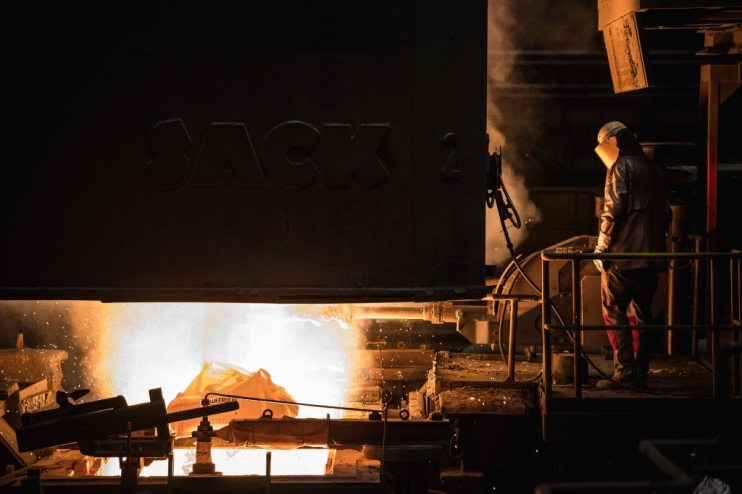UK steel firms suspend imports of Russian coal

Tata Steel UK (Tata) and British Steel have both suspended imports of Russian coal, according to The Mail on Sunday.
The decision follows sustained pressure from Western governments for businesses to divest from Russia, as it ramps up sanctions on the country following the invasion of Ukraine.
Coal is used to heat blast furnaces up to 1,800 degrees centigrade, a crucial aspect of the steel-making process.
Over the past four years, the UK has imported three million tons of coking coal from Russia: the main type used in steelmaking.
This is second only to the US, with government data revealing the UK imported 867,000 tons in 2018, 699,000 tons in 2019, and 722,000 tons in 2020.
Figures for the first nine months of 2021 reveal 684,000 tons had already been bought, putting the UK on course for another bumper year.
Industry under pressure as West ramps up sanctions on Russia
Tata is part of a giant Indian conglomerate and runs Britain’s biggest steelworks at Port Talbot in South Wales.
British Steel was acquired from administration by China’s Jingye in 2020, and manufactures steel for railway tracks from sites in Scunthorpe and Teesside.
Its actions reflect increasing Western pressure on the Kremlin.
Last week, the White House announced an immediate ban on Russian coal, oil and gas while the UK is phasing out Kremlin-backed oil supplies over the course of the year.
On the continent, Germany has suspended the Nord Stream 2 approval process, and has committed to constructing LNG terminals while maintaining gas storage at 90 per cent of capacity.
It is also reconsidering the domestic phase down of coal as it looks to reduce its heavy dependence on Russia.
| Energy / Country | EU | UK |
| Crude Oil | 27 | 8 |
| Natural Gas | 41 | 4 |
| Coal | 47 | 35 |
| Overall | 38 | 16 |
The European Union has also pledged cut down Russian gas and oil usage by two thirds this year.
Its divestment is more modest than its Western partners with the bloc more reliant on Russia than the US or UK.
European think tank Bruegel has warned that the costs involved in the EU cutting off Russian energy supplies could soar to €100bn.
Nevertheless, gradual moves are being made, reflecting the determination of Western economies to isolate Russia.
The latest action from the two UK steel giants is also likely to prompt calls for a complete ban on imports of Russian coal.
Industry sources told the newspaper steelmakers were likely to turn to Australia, Canada and others to make up the shortfall.
Last week, Levelling Up Minister Michael Gov week urged to fast-track approval of an application to build a coal mine in North West England.
Copeland mayor Mike Starkie has urged Gove to approve West Cumbria Mining’s application for a £165m mine for coking coal, used to make steel in Whitehaven.
The project has been approved three times by Cumbria County Council, but was called in by the government for a judicial review last year.
Johnson has said the UK will attempt to source more energy domestically – with the Prime Minister set to outline the UK’s energy strategy over the coming days.
Plans are likely to encourage investment towards British projects in wind farms, fracking and mining.
Alongside geopolitical tensions, steel companies are grappling with soaring with exclusive City A.M. research suggesting domestic industry faces a £20bn bill from rising energy costs.